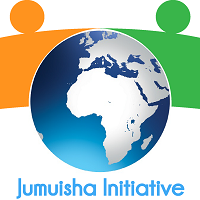Environmental Protection Unit
Jumuisha Initiative is a community-based organization that champions for youth
inclusion in development. The organization started in 2016, conducting tree planting in
schools through environmental clubs and training students on adaptation of climate
action based on the UN Sustainable Development Goals 13.
Over the years, the organization has planted over 14000 tree seedlings with very high
survival rates, in primary and secondary schools as children are known to be
enthusiastic about climate restoration and tree growing. We noticed that learners in
primary schools were proud of trees planted and hence scaled up tree planting in
secondary schools and eventually in the community.
After covid, the organization scaled the environmental protection to community level,
to increase particularly forest cover due to the high human activity and deforestation.
In partnership with 7 community-based youth groups engaged in tree nurseries,
Jumuisha Initiative ventured into community education on climate action while
undertaking community forest restoration initiatives that included tree planting while
educating communities on the importance of tree growing and environmental
protection while promoting food security thru agroforestry.
Milestones include;
▪ Tree planting at Makongo primary school, April 2023
▪ Rehabilitation/ tree planting of 78ha community forest in Emali December 2022
▪ Rehabilitation/ tree planting of 104ha community forest in Mbui Nzau, October
2021
▪ Tree planting 200 indigenous seedlings in Ilatu secondary school, May 2020
▪ Tree planting 200 indigenous seedlings in Ngomano secondary school, May
2019
▪ Tree planting 300 indigenous seedlings in Kaunguni Secondary school, April
2019
▪ Agroforestry – 12 farmers in Mbooni, 2021
▪ Tree planting 30 indigenous seedlings in Ukia Girls high school, 2018
Greatest challenges related to growth of tree seedlings to maturity include drought
and lack of water in most arid areas, at school level and community forests; and
human activities such as grazing and charcoal burning. These have been resolved by
planting seedlings close to rainy seasons hence higher survival and also fencing off
planted areas to reduce interference by human activities.
In the next 5 years, we envision growing already planted seedlings while increasing by
30 percent youth participation in climate action and environmental protection. This
will be done through in organized initiatives that include local, regional and global
partnerships, and grants for environmental protection.

